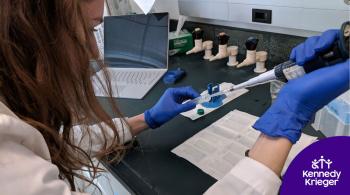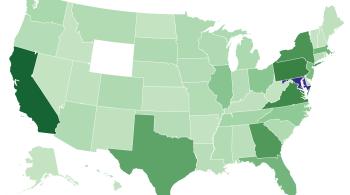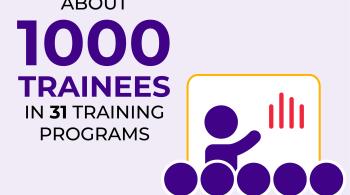BALTIMORE, May 26, 2023—People with autism spectrum disorder (ASD) faced a greater risk of hospitalization and mortality when infected with the coronavirus during the most acute phase of the COVID-19 pandemic, according to research from Kennedy Krieger Institute.
Journal of Autism and Developmental Disorders published the study this spring.
One reason for the higher rate of hospitalization and mortality were the co-morbidities or co-occurring diagnoses that patients with ASD can have. Some of the common co-morbidities associated with autism are gastrointestinal problems, metabolic disorders, immune impairment, hypothalamic-pituitary-adrenal dysfunction, sensory dysfunction, motor dysfunction, psychiatric conditions, and intellectual disability.
“What we saw in this study was that co-morbidities played a significant role increasing the risk of both hospitalization and mortality among patients with ASD,” said Harolyn Belcher, MD, MHS, Kennedy Krieger vice president and a professor of pediatrics at Johns Hopkins University School of Medicine. “This is important to note as we consider equitable healthcare delivery during this or future emergencies, as well as with routine healthcare.”
Researchers looked at a cross section of de-identified patients diagnosed with COVID-19 between February 1, 2020 and Sept. 30, 2020. All of the patients had private medical insurance, and their medical claims were stored in the FAIR Health, Inc. National Provider Insurance Claims repository database. FAIR Health is a nonprofit that maintains data from insurance companies across the nation.
Findings were then adjusted for sociodemographic factors as well as co-morbidities.
Researchers noted that adults with severe autism or both autism and an intellectual disability are more likely to live in a residential facility or receive in-home support services, which increased their exposure to the coronavirus. For this reason, they recommended that people with ASD continue to be prioritized for vaccinations and booster shots, even as the pandemic turns into community-level endemics.
“Better understanding of the heterogeneity of autism and the impact on physical health can inform strategies for promotion of health and well-being of all persons with autism,” Dr. Belcher said.
###
About Kennedy Krieger Institute:
Kennedy Krieger Institute, an internationally known nonprofit organization located in the greater Baltimore-Washington, D.C., region, transforms the lives of more than 27,000 individuals a year through inpatient and outpatient medical, behavioral health and wellness therapies; home and community services; school-based programs; training and education for professionals; and advocacy. Kennedy Krieger provides a wide range of services for children, adolescents and adults with diseases, disorders and injuries that impact the nervous system, ranging from mild to severe. The Institute is home to a team of investigators who contribute to the understanding of how disorders develop, while at the same time pioneering new interventions and methods of early diagnosis, prevention and treatment. Visit KennedyKrieger.org for more information about Kennedy Krieger.















